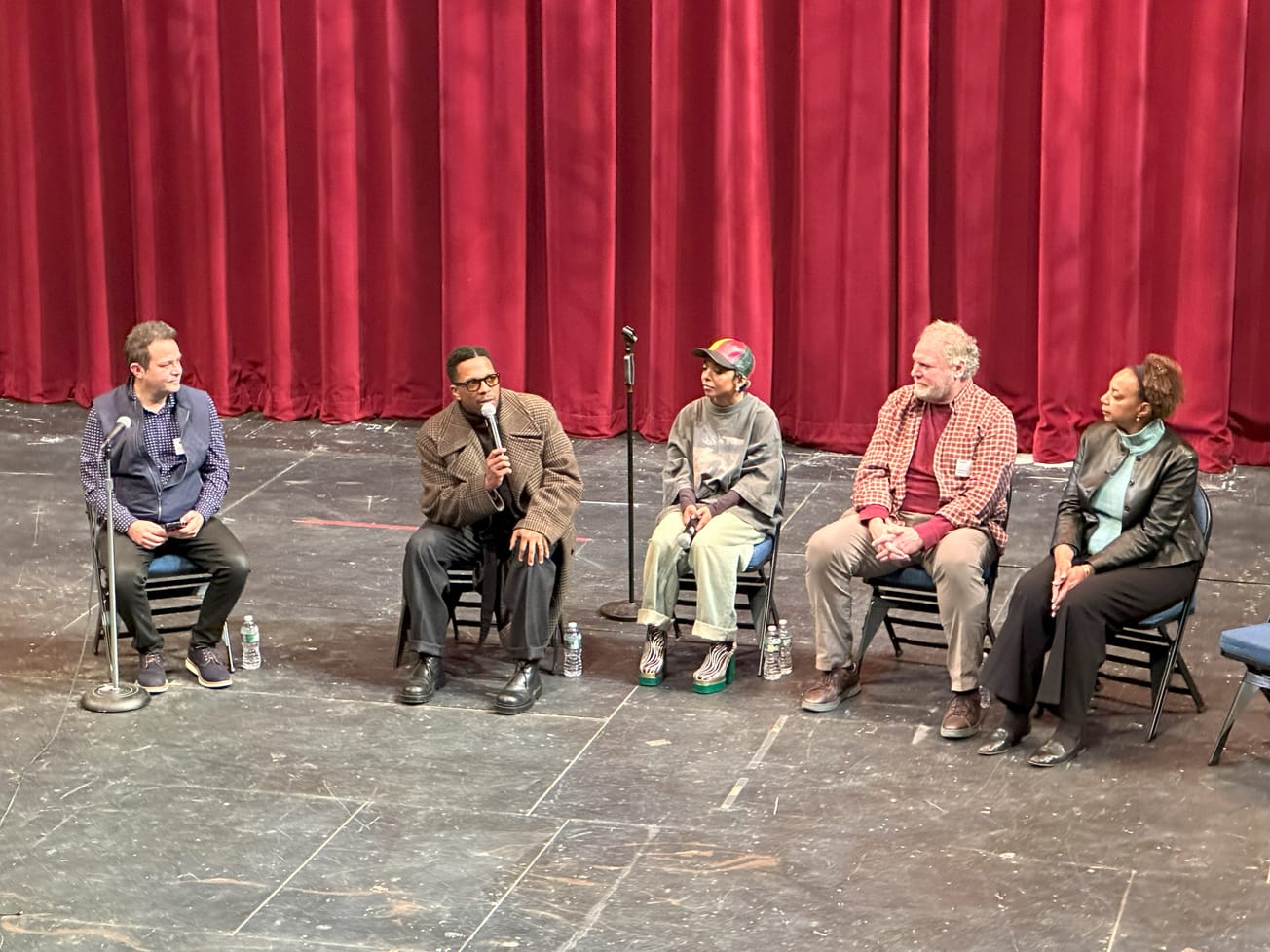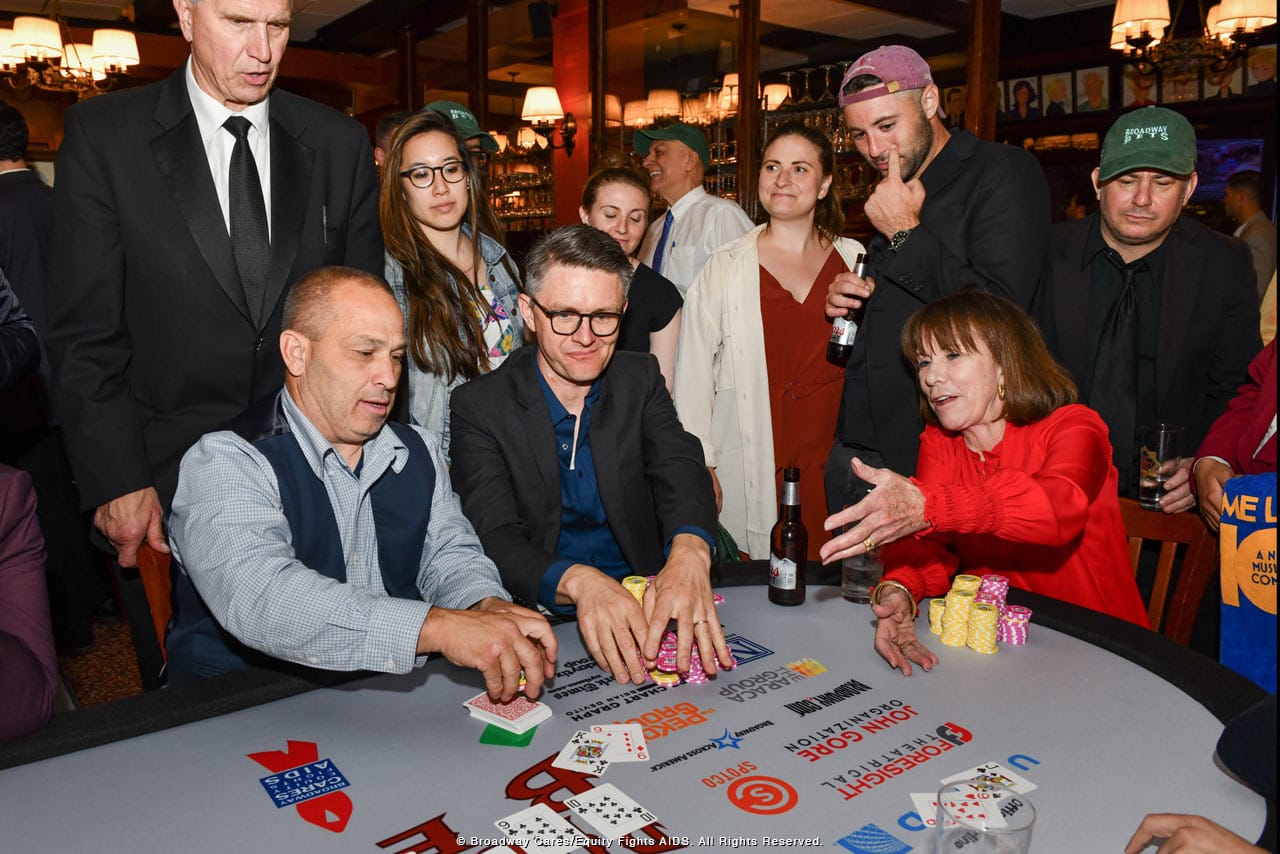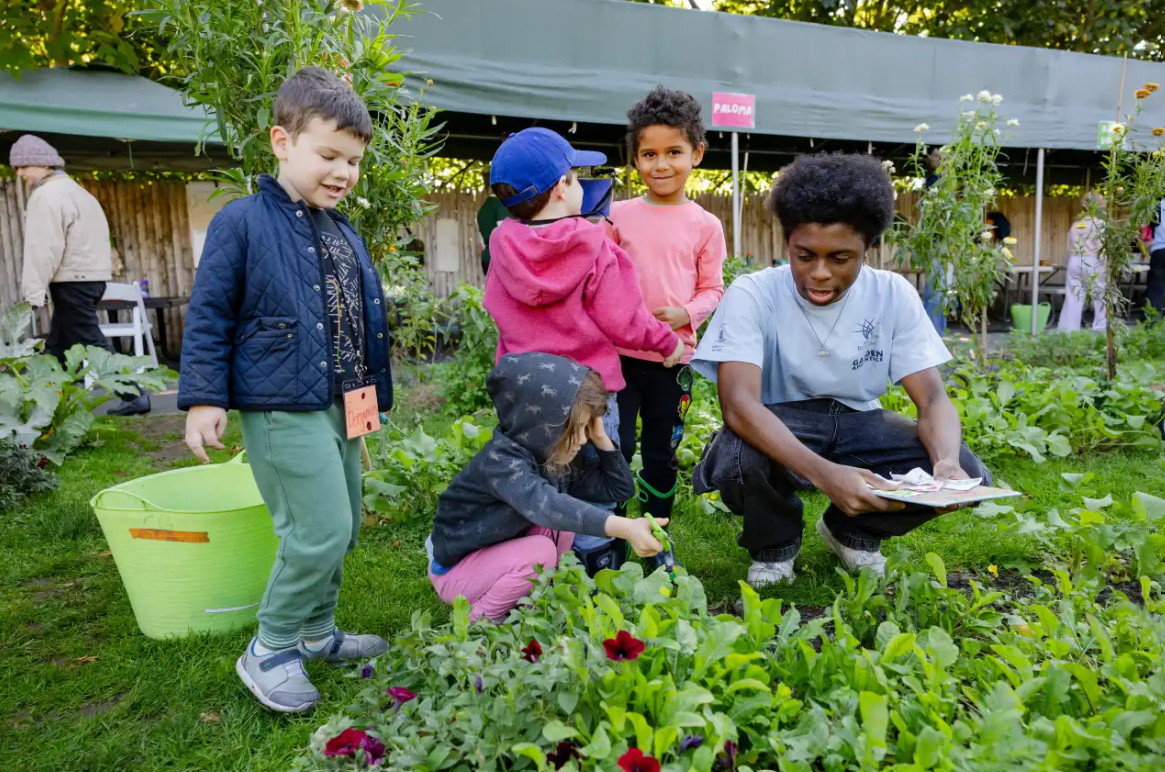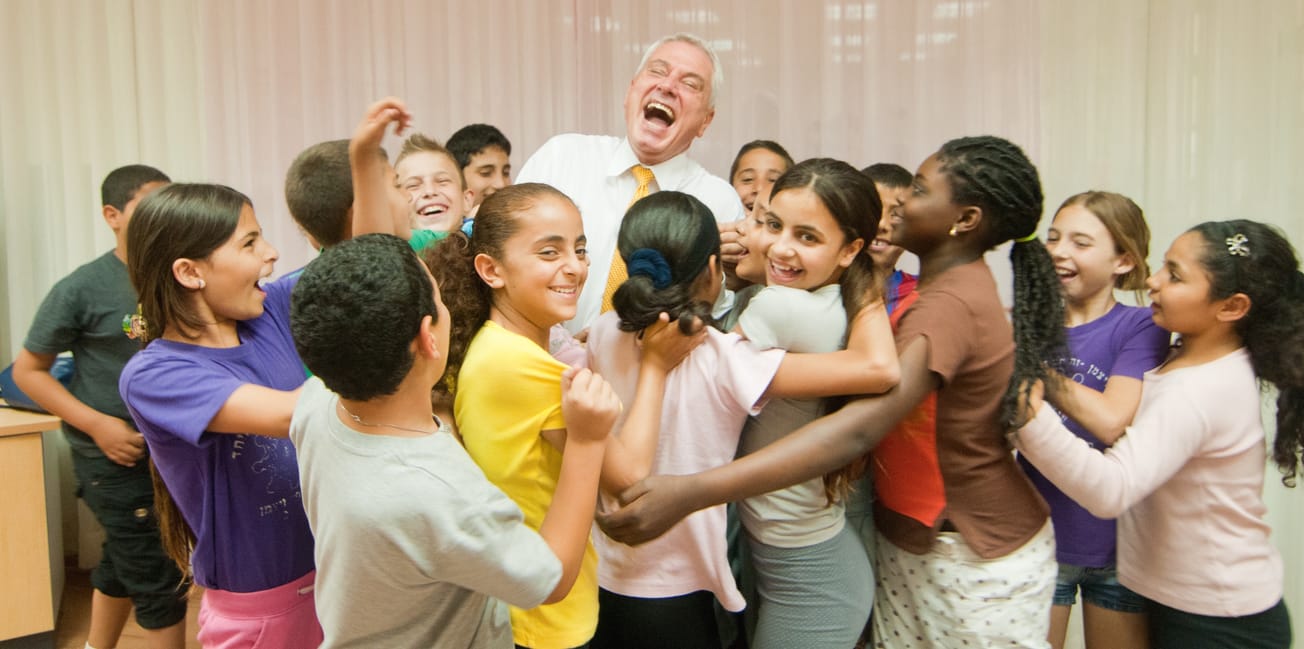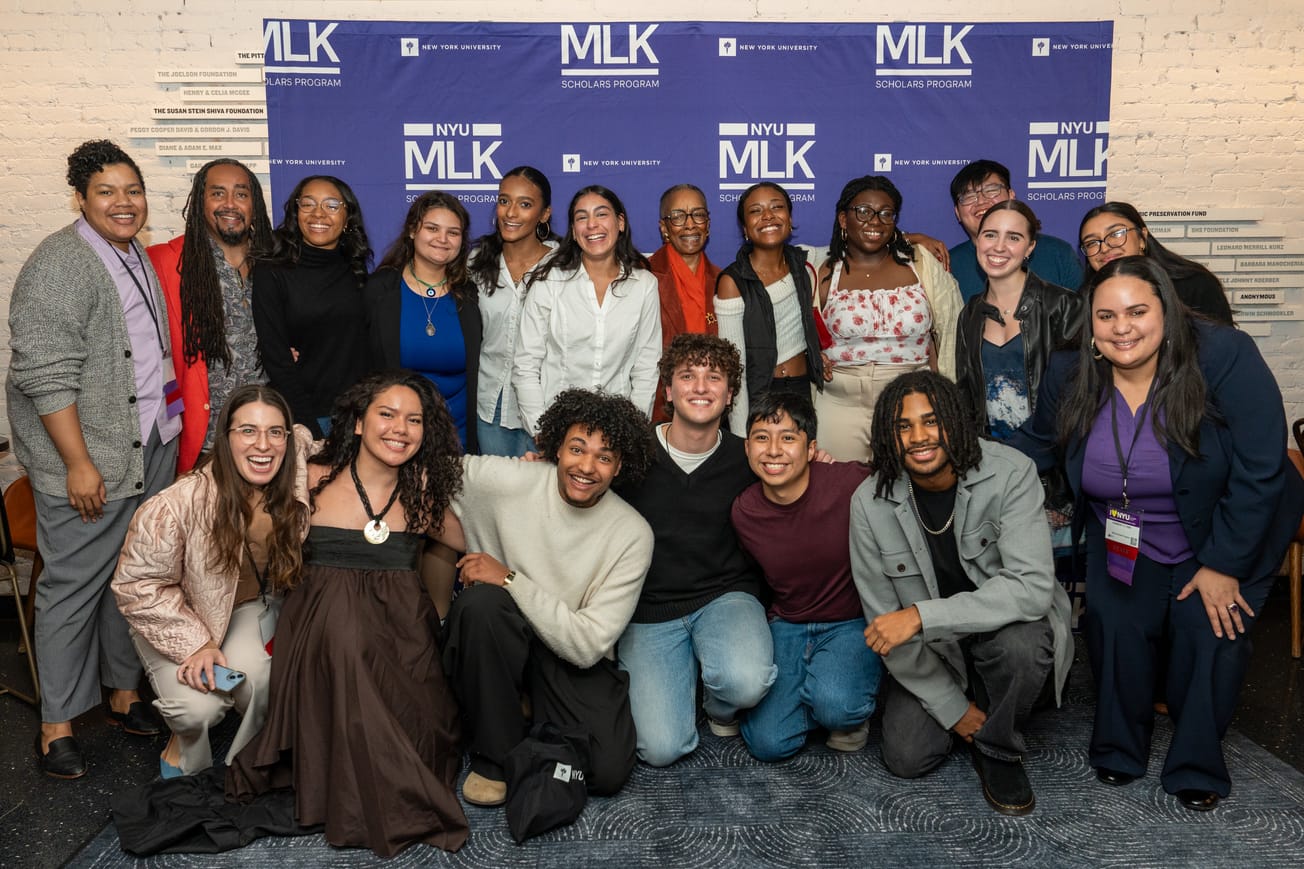Playbill has partnered with Situation Project to create and amplify stories of inspiration that advocate for access to arts and cultural experiences for young people across the country. The following article is written by the team at Situation Project and adapted from their online publication Inspired. Click here to learn more.
Two days after they took their final bows on Broadway, the cast of Purlie Victorious: A Non-Confederate Romp Through the Cotton Patch, took the stage again: this time at LaGuardia High School for an audience of over 200 public school students.
Thanks to a pioneering collaboration between Situation Project, the Department of Education, and the Broadway hit, Purlie Victorious, over 2,000 NYC students attended the show over the course of its run—at a highly subsidized student ticket price. This program, spearheaded by President of Regina Productions Rachel Weinstein and Situation Project's Executive Director, Samara Berger, culminated in a panel discussion on February 6 that celebrated the profound influence of arts education on young lives for 200 of those students.
The panel, which featured cast members Leslie Odom Jr., Kara Young, Jay O. Sanders, and Dr. Hasna Muhammad, educator, advocate, and daughter of playwright Ossie Davis and actress Ruby Dee, was moderated by Peter Avery, director of theatre for the DOE.
“Inspiration comes from a holy place,” Odom said to the students who came from five different public schools across the boroughs of New York City. “And that [inspiration] came [to me] about seven years ago in the form of this play that I've known since I was about your age.”
“[This play] was one of the most profound artistic experiences of my life,” Young shared with the student audience. "This play — every word, every bar — was the truth.”
Thanks to the support of Concord Theatricals and the Dee-Davis Family, the Purlie Victorious Education Initiative distributed over 2,000 scripts for the students’ use and supplied educators with comprehensive play study guides enriched with insights and interviews from the production team, including an epilogue by National Black Theatre. Many of the students brought their scripts to the panel and, once the conversation concluded, had the chance to engage with the cast and ask them for autographs.
Kara Young poses with six students after the panel.
"You can talk yourself out of a whole lot,” Odom shared with the students. “I just encourage you...to get busy. Get started on doing the thing you're inspired to do."
Abdalla, a student from Bronx Health Science High School, spoke to the power of Odom’s words, "I feel heard. When you see these people perform, when you see them on TV, you think of them as a theory, you think of them as otherworldly. But now that you see them talking to you, you see that they're just like us, and maybe one day, I could be there too."
“I relate to [Purlie’s] journey because of how brave he was,” said Kofi, a student from Kipp Freedom Middle School. “Even though he was being oppressed, and was the underdog, he still looked for the better.”
Research underscores the value of arts education in developing critical thinking, emotional intelligence, and cultural awareness among students. One report emphasizes that engagement in the arts contributes to academic success, social-emotional development, and civic engagement.
This event serves as a potent reminder of the critical role arts education plays in empowering youth and enriching our society. The shared stories and insights from this collaboration between Situation Project, the Department of Education, and Purlie Victorious illustrate the essential nature of the arts in fostering a brighter, more inclusive future.
Dr. Hasna Muhammad speaks with a student after the panel.
"These limitations to our lifestyles have been around for centuries,” shared Dr. Hasna Muhammad. “But humor and art and theatre as tools of resistance to oppression have also been around for a long time, and must continue."


